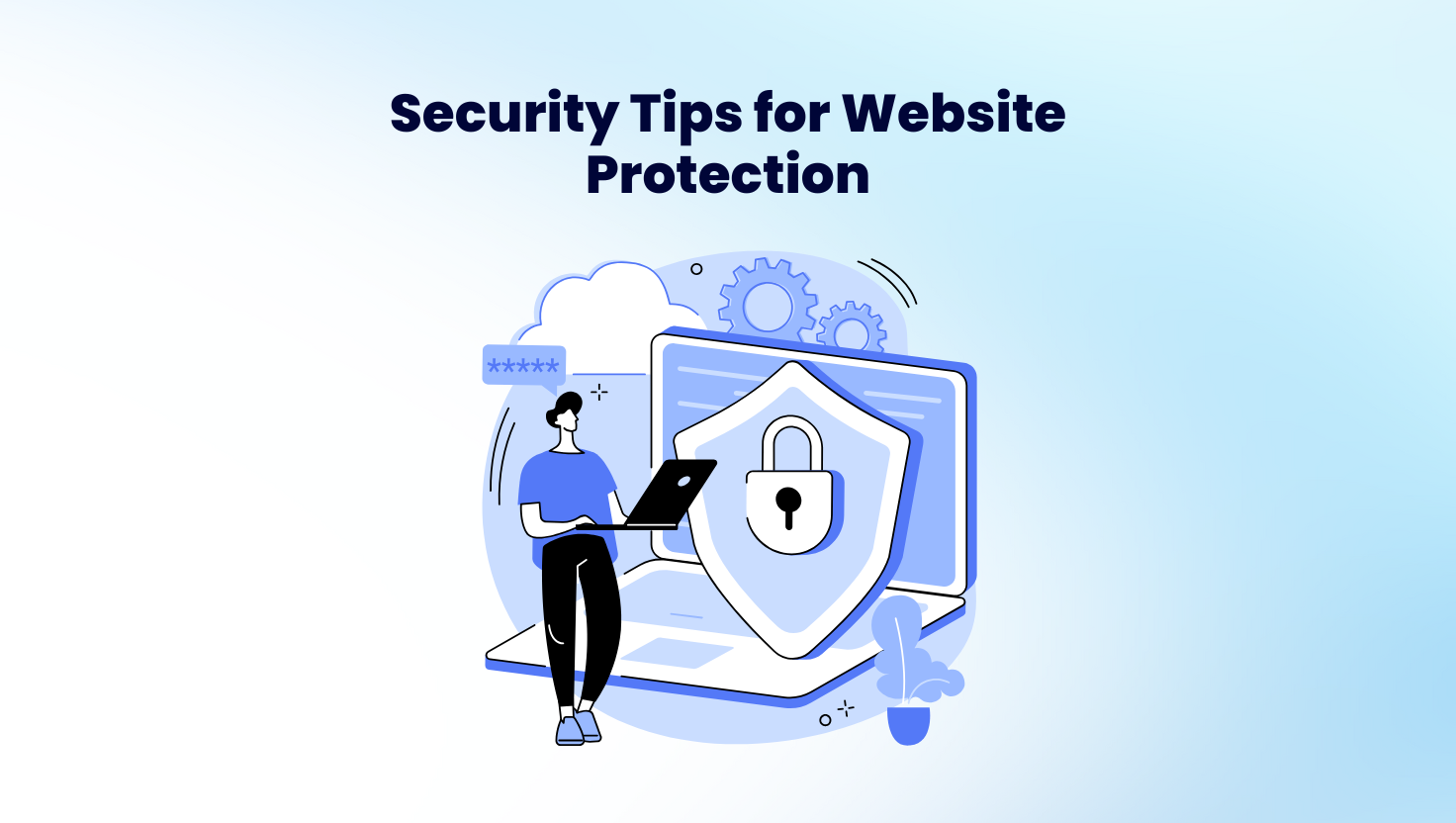
21 Feb 5 Must-Know Security Tips for Protecting Your Website
Website security is a crucial aspect of maintaining an online presence. Cyber threats like hacking, data breaches, malware, and DDoS attacks continue to evolve, making it essential for businesses to proactively safeguard their websites.
A single security vulnerability can lead to data loss, financial damage, loss of customer trust, and even legal penalties. To ensure your website remains secure and operational, businesses must adopt strong security measures and regularly monitor for potential risks.
Here are five crucial website security tips to keep your business safe.
1. Keep Your Website Software and Plugins Updated
Outdated software is a prime target for hackers. Many cyberattacks exploit security loopholes in outdated CMS platforms (like WordPress, Joomla, or Drupal), plugins, and themes.
Best Practices:
- Enable automatic updates for your website, CMS, and plugins.
- Remove unnecessary or outdated plugins that may have security vulnerabilities.
- Regularly check for security patches and bug fixes from software providers.
- Choose plugins/themes from reputable developers that frequently release updates.
Using an outdated system is like leaving the door unlocked for hackers—ensure your software is always up to date.
2. Strengthen Your Authentication Measures
Weak passwords and poor authentication protocols make it easy for hackers to gain access to your website. Implementing strong passwords and Two-Factor Authentication (2FA) adds an extra layer of security.
Best Practices:
- Use complex passwords with a mix of uppercase, lowercase, numbers, and symbols.
- Store credentials securely using password managers (e.g., LastPass, Bitwarden).
- Implement Two-Factor Authentication (2FA) for admin logins.
- Restrict the number of failed login attempts to prevent brute-force attacks.
Even if hackers obtain your password, 2FA requires a second verification step, preventing unauthorized access.
3. Install an SSL Certificate to Encrypt Data
An SSL (Secure Sockets Layer) certificate encrypts data between your website and users, making it harder for hackers to steal sensitive information like passwords, payment details, and personal data. Websites without SSL are often marked “Not Secure” by browsers, reducing user trust.
Best Practices:
- Install an SSL certificate from a trusted provider (e.g., Let’s Encrypt, Cloudflare, GoDaddy).
- Ensure your website uses HTTPS instead of HTTP.
- Regularly check for SSL expiration dates and renew when necessary.
- Use Extended Validation (EV) SSL certificates for added security and credibility.
SSL encryption is mandatory for all websites—especially e-commerce, finance, and healthcare sites that handle sensitive data.
4. Protect Against Malware, DDoS Attacks, and Cyber Threats
Hackers use malware (viruses, trojans, spyware), bots, and DDoS (Distributed Denial of Service) attacks to crash websites, steal data, or redirect visitors to malicious sites.
Best Practices:
- Use firewalls (e.g., Cloudflare, Sucuri) to block malicious traffic.
- Scan your website regularly with malware detection tools (e.g., Sitelock, Wordfence).
- Implement DDoS protection services to filter out harmful traffic spikes.
- Use intrusion detection systems (IDS) to monitor and prevent unauthorized access.
Cyber threats continue evolving, so proactive protection is necessary to keep your website secure.
5. Perform Regular Website Backups
Even with the best security measures, unexpected events like cyberattacks, hardware failures, or accidental data deletion can still occur. Regular website backups ensure that you can restore your site quickly without losing important data.
Best Practices:
- Set up automated daily or weekly backups of your website and database.
- Store backups in multiple locations (cloud storage, external drives, or offsite servers).
- Use incremental backups to save storage space while preserving important data.
- Test your backups regularly to ensure they can be successfully restored.
A solid backup plan is your safety net, allowing for a fast recovery in case of security breaches or system failures.
Additional Security Measures for Extra Protection
1. Monitor Website Activity and Logs
Keeping an eye on website logs helps you detect suspicious activities early. Look for unusual login attempts, high traffic spikes, and unauthorized file changes.
- Use website security monitoring tools like Sucuri, Jetpack, or Google Search Console.
- Set up real-time alerts for unusual activities.
- Limit admin access to trusted users only.
2. Limit User Permissions and Access Controls
Not all users need full administrative access to your website. Assign different roles and permissions to reduce security risks.
- Provide role-based access (Admin, Editor, Contributor, Viewer).
- Revoke access from inactive users to prevent unauthorized entry.
- Regularly review and update user privileges.
3. Secure Website Hosting and Server Configuration
Your web host plays a crucial role in your website’s security. Choosing a reliable hosting provider with built-in security features ensures your data stays protected.
- Select hosting providers that offer firewalls, malware protection, and automated backups.
- Keep your server and databases updated to prevent security vulnerabilities.
- Use secure FTP (SFTP) instead of FTP to protect file transfers.
How PT. KDN Can Secure Your Website
Website security is an ongoing effort that requires expert management, constant monitoring, and proactive defense mechanisms. Businesses that lack technical expertise may struggle to keep up with security best practices.
At PT KDN, we provide comprehensive security solutions to protect your website from cyber threats. Our services include:
- Secure website development with built-in protection.
- Advanced firewall and malware protection to safeguard against attacks.
- SSL certificate installation to encrypt data transmission.
- Automated backups and disaster recovery solutions to prevent data loss.
- Security audits and monitoring services for early threat detection.
By partnering with PT KDN, you can focus on growing your business while we handle your website security. Don’t leave your website vulnerable to attacks—contact PT KDN today for a security consultation!


Sorry, the comment form is closed at this time.